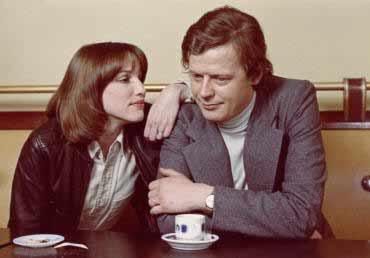Marion is classic Rohmer, her high-minded ideals soon undermined by her own actions. Of course this is done without malice for her, it is simply the way we humans prefer to live our lives. " A wagging tongue bites itself" is the motto of the film, the third in the Comedies and Proverbs, and thus it proves for Marion. (And yes, it's another very talky Rohmer film, brimming with lively debate and dialogue.)
All this emotional to-ing and fro-ing is observed with equilibrium by Pauline. And of course Pauline has a little love interest too in Sylvan, whom she meets also a la plage. Their attraction is uncomplicated by the standards of the adults, but Pauline is drawn into their machinations by Henri, acting to save his own skin. For Pauline it's a bruising encounter with the double standards of the adult world.
Pauline a la plage would make a great YA novel. The teenage characters are deftly and convincingly captured by Rohmer, an absolute master of the late adolescent years.
A final, not insignificant pleasure is the Brittany coastline in late summer: though there is a glimpse of Mont St Michel, the season is the wind blown, low slanting light of late summer. Not the postcard France yet all the more affecting for it.




